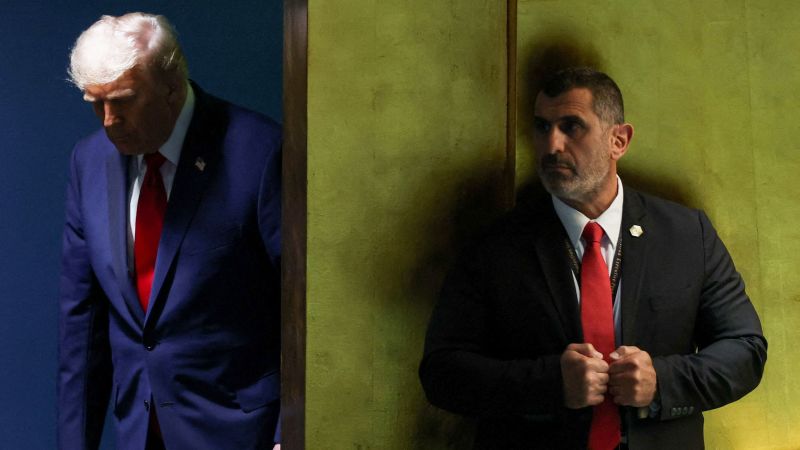By Morgan Jones
Copyright newstatesman

When, some months ago, I first heard that plans for the organisation which would become “Mainstream” were being mooted, I thought it made sense. More than that, I thought the proposed consolidation of a broad(ish) left space within Labour, logistically underwritten by a renewed incarnation of the Compass think tank, was fairly timely. There is a clear appetite among an unhappy membership for groupings criticising Starmer from the left – Open Labour were too underpowered, and Momentum too tainted – and the network could do well, I thought, as a locus of members’ opposition. It could be a new place for conference motions and fringes, for quotes at the end of Guardian articles about internal discontent, and, eventually, for National Executive Committee slates and candidate endorsements.
I could not, however, have imagined just how timely the launch would prove to be, coming just days after Angela Rayner’s resignation, a reshuffle that took the party to the right, and a deputy leadership election which will act as a referendum on the government’s direction and leadership. It also came just a few days before Peter Mandelson’s relationship with Jeffrey Epstein came under renewed scrutiny, leading to the Prime Minister’s sacking him, and then facing questions about his knowledge of the extent of the ambassador’s support for the deceased paedophile. This series of events brought about the first serious whisperings that Keir Starmer’s time at No 10 might be limited.
In this context, Mainstream has been widely understood as much more than a locus of discontent, but as something far more active: not just a vehicle to attack Keir Starmer (although Clive Lewis, probably the MP who has worked most closely with Compass in recent years, has been more spirited in this pursuit than any Labour MP up to this point) but to install a new leader, specifically Greater Manchester Mayor Andy Burnham. Mainstream, which the mayor has endorsed will, according to the Guardian, “inevitably be seen as a vehicle that could be quickly transformed into a leadership operation [for Burnham] if needed”. (While Burnham rejected this claim in his interview with the New Statesman, he did pointedly criticise the “very factional and quite divisive running of the Labour Party” just days before the party’s conference.)
To understand the diagnosis of Mainstream, and the general soft-left critique of this administration, a good place to start is with a book published last month. Titled The Starmer Symptom, it is a collection of essays on where the Labour Party is now, by what we can generally think of as The Mainstream Set. And this is the first thing to take into account: this is as much a set as it is a tendency. To me, the group’s initial sign-up list read more like a network of intellectual and social circles with shared points of connection, impetuses, and instincts. Clive Lewis has provided a foreword to The Starmer Symptom, and the book features contributions from Mainstream signatories Jeremy Gilbert and Danny Dorling, as well as an essay from Compass director Neal Lawson. (The latter has been a prolific commentator in recent weeks, attacking Starmer and McSweeney for having adopted “policy positions that [they] know will force out people with a moral code” and praising Burnham as someone who “feels comfortable in his own skin and beliefs.”)
It’s a movement that has been around for a long time, threading in and out of organisations like Compass, the Labour Coordinating Committee (which didn’t make it into this century) and the bi-monthly magazine Chartist (which celebrated 50 years of publication in 2020), and, indeed, Renewal, the publication of which I am co-editor. Figures like Ruth Lister, Michael Jacobs and Sue Goss (a former Coordinating Committee chair) sat alongside each other on the original Compass launch statement in 2003 and now they have signed up to Mainstream. They have known each other for a long time, and their signatures have appeared alongside each other on letters about the direction of the Labour Party for equally long.
The “symptom” of the book’s title is a riff on the famous Gramsci quote – old dying, new struggling to be born, time of monsters, morbid symptoms arising (you’re familiar). As Mark Perryman (the collection’s editor, a member of the Marxism Today editorial board between 1984 and 1990, and, of course, a Mainstream signatory) explains in the lead essay, Starmer is a creature of the interregnum: a supply teacher sent to cover the period in which mainline party politics, as we have known it, breaks apart and something new is formed.The complaints about his performance from contributors will also be familiar: that Starmer “deceived and tricked” his way into the leadership and (as Jeremy Gilbert writes) purged supporters of Corbyn “on spurious grounds”; that his approach to the left (and particularly Diane Abbott, whose treatment Gargi Bhattacharyya describes as “a performance designed to be appreciated by an imagined audience of racist swing voters”) has been disgraceful; and that Labour’s policy agenda is far too timid to tackle inequality, take on private interests, or do much of anything, really.
On a broader level, much of the book contends that more than Starmer being the problem, Labourism itself is not sufficient. “No one party can solve the polycrisis we face,” says Lewis in the foreword; social democracy is a “wasteland” around the world, and Starmerism has come about in a broader context of “profound weakness and defensiveness”, we hear from Lawson in his contribution. New syntheses are needed if progressive politics is to go anywhere but backwards. Perryman tells us that Labour has an “aversion to embracing actually existing pluralism” and needs to learn to work with other traditions (some, of course, would argue that actually existing pluralism is the efficient tactical voting we see at general elections). In real terms, it needs a progressive alliance (and also, as an essay by the Electoral Reform Society’s Jess Garland discusses, a proportional representation system).
Faith in the progressive alliance also implies faith in dialogue in and of itself. What I have long thought of as “Have A Big Chat Politics” is one of the touching spaces between the world of Compass and Mainstream, and that of and Blue Labour, whose protagonists generally seem happiest in a seminar format. This intersection was interestingly occupied in the deputy leadership contest’s heady first few days by the Liverpool Wavertree MP Paula Barker, a former member of the Socialist Campaign Group who has backed Mainstream. She picked up the support of Blue Labour MPs as well as more classic soft leftists, and then saw her nominations scatter to Lucy Powell and Bell Ribeiro-Addy. More broadly, the intersection has been embodied by Jonathan Rutherford whose involvement in Labour politics began through Compass and related New-Leftish journal Soundings, before he became the central Blue Labour figure we understand him to be today.
The problem I have always found, however, is that the dream – Charter 88 and all that – is almost 40 years old. I have read editions of Renewal from the mid-90s and found the same arguments about devolution and the limits of Labourism. I have read about the Labour Co-ordinating Committee’s 1988 call for Labour to “take electoral reform seriously”. Much as I feel sure Starmerism isn’t up to the task, I am not particularly convinced that this grouping has the breadth of answers, or the ability to update its thinking, that the moment demands.
Undergirding this worldview tends to be the idea that if you can just break through certain structures – party political, voting system, a centralised political system – and enable people to be full democratic actors (to have a Big Chat), you will have arrived at a better, fairer society. It is an ultimately optimistic worldview, admirable in its faith in people, imbued with an end-of-Cold-War belief in the onward march of liberal progress. But everyone is on TikTok watching videos about small boats, and these are not optimistic times. Personally, I do not think solving the progressive dilemma (David Marquand, of course, was a signatory to the letter on Compass’s founding) is the central challenge for social democrats in the UK today. As Paul Mason argues in the most recent edition of Renewal, we live in a zero-sum world. Politics is about conflicts of interest. Unlike Clive Lewis, I do think there is a fundamental conflict between the Labour Party and someone who goes to a Tommy Robinson march.
As well as being idealistic, I tend to find the version of pluralism put forward by Compass and represented in the essay collection to be, somewhat oxymoronically, often quite dogmatic about its chosen solutions (progressive alliance; electoral reform; have a think about UBI). The Starmer Symptom offers a critical take on the government with which I broadly agree, but one that often seems unwilling to do the hard work of parsing what works and what doesn’t, what is left-wing and what isn’t, which – even at the Cabinet level – is distinctly varied. Lewis’s foreword, for example, has some fairly harsh words for Labour’s environmental agenda, overseen by Ed Miliband – under whom Lewis was selected as an MP – the tone of which, I think, does not acknowledge the extent of the government’s commitments in that area, even if one might still hope for more.
Though I’m not wholly convinced by The Starmer Symptom as a critique, I am convinced of the answer to a more important question. I believe Mainstream is offering what the Labour membership, by and large, wants (even if Luke Akehurst is very adamant that it won’t be good for them). The top of the party is far more Labourist than its grassroots, who back proportional representation whenever it is presented to them, and like common ownership – and also Andy Burnham.
If Clive Lewis – a backbencher – is the MP most closely associated with this world in recent years, Burnham is the prominent politician (with, as directly elected mayor, a degree of actual power) who most embodies these politics. His combined authority has trialled UBI; he backs proportional representation and talks about needing a more “pluralistic” party. When I interviewed him earlier this year, he discussed how he would “advocate for the removal of the whip system” in Westminster (“I think we need a more mature politics where people can go out and say what they feel,” he said, Big Chatly), which strikes me as in the classic mould of “structures are holding back democratic expression.” Whether Burnham can find his way back into the Commons is the most pressing question for now. A question for further down the line: how much of this politics might Burnham take with him to Downing Street should he get there?
[Further reading: Exclusive: Andy Burnham’s plan for Britain]



